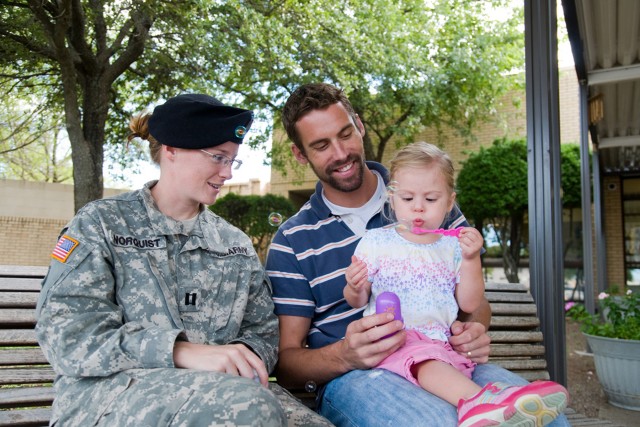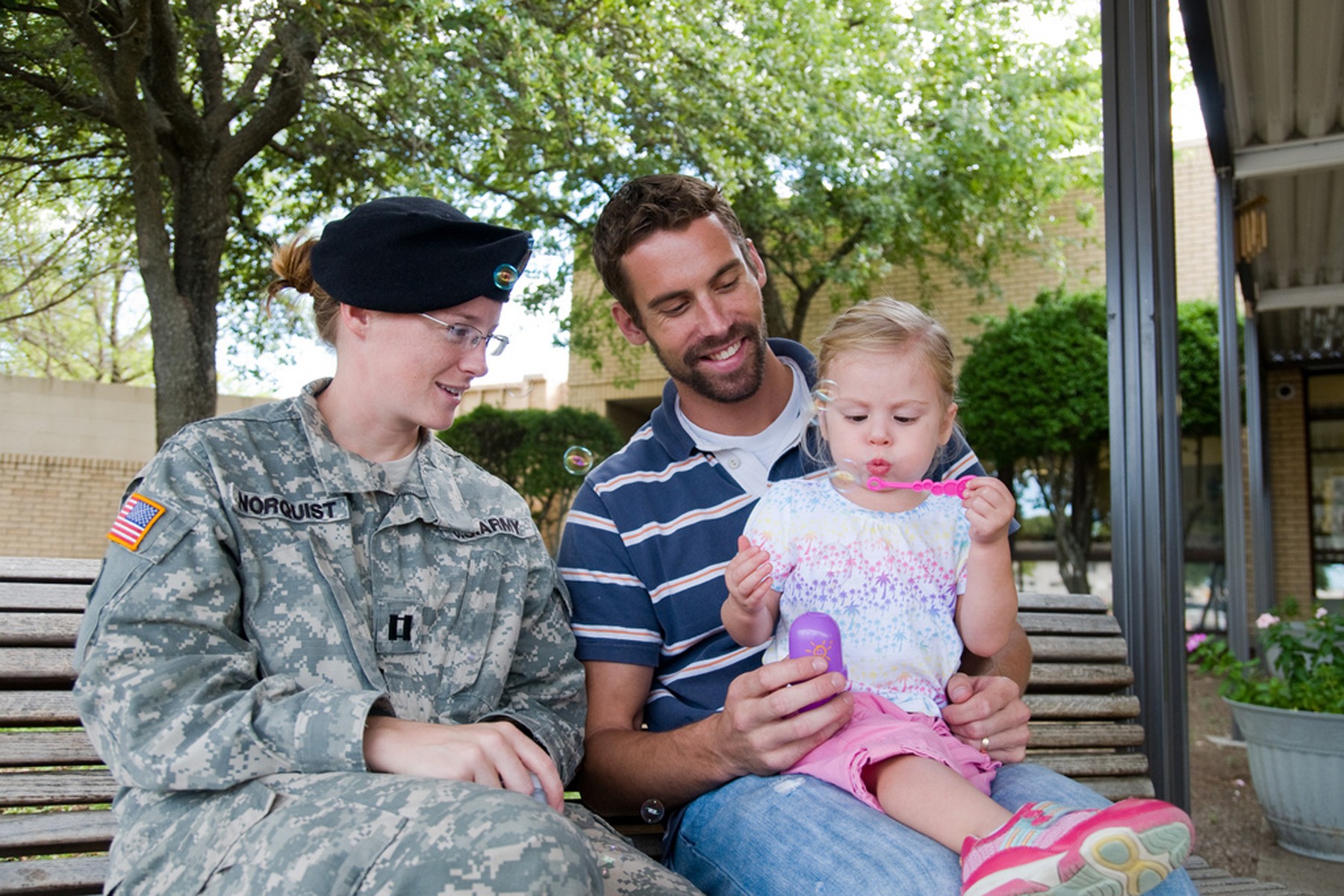STUTTGART, Germany -- Marine spouse and community volunteer Carmen Carlisle is on the road to increased resiliency.
Carlisle was among the dozen family members and civilians who gathered Feb. 2 for the first in a series of monthly sessions on resilience training, offered through U.S. Army Garrison Stuttgart Army Community Service.
The interactive first session, "Hunt for the Good Stuff," focused on optimism -- noticing and analyzing what is good in life from day to day -- as attendees discussed how best to grow and thrive in the face of challenges and bounce back from adversity.
"As military spouses, we have to adjust our dreams every time we move," Carlisle said. "Maybe you had a job at your last installation, but can\'t find one at the new one. You have to look at your own personal strengths and be optimistic. The connections you build help with resilience."
The resilience training, which is part of the Comprehensive Soldier Fitness program, aims to increase self-awareness, self-regulation, optimism, mental agility, character strengths and connections.
The holistic fitness program for Soldiers, family members and civilians focuses on the five dimensions of strength: emotional, social, spiritual, family and physical.
Master Resiliency Trainers Gina Starrett, ACS Mobilization and Deployment manager, and Monica Sadler, ACS Family Advocacy Program Manager, are heading up the resiliency training sessions, held on the first Wednesday of every month for family members and civilians.
The pair was among those who attended training at the University of Pennsylvania in August 2010 to become Master Resiliency Trainers through an effort between the Army and the institution.
"Key to increasing optimism is learning to counter the human tendency toward negativity," Sadler said. "Optimism is the engine of resiliency," she added. "That's why we began with teaching 'Hunt for Good Stuff' as a skill that helps you recognize the things that are good in life and reflect on why they are good. People can change and learn -- it has to do with your thinking style."
During the next resiliency training session, to be held March 2, attendees will tackle the issue of understanding how they react to situations confronting them, Starrett said.
"The program is meant to build upon itself," Starrett said. "Starting off teaching an 'attitude of gratitude' is fundamental to changing the way you go through your day. It's simple to learn, but not so easy to implement."
Voluntary for family members and civilians is an online, survey-based self assessment -- the Global Assessment Tool -- that gauges an individual's emotional, spiritual, social and family "fitness."
To access the site, visit www.army.mil/csf. Login with a CAC or AKO account. Army families can sign up for a CSF login and password and future plans are in the works for expanded access to all services.
The individual GAT results, which are confidential, are linked to some 72 self-development modules tailored to a person's survey responses, Starrett said.
Carlisle, who said she hasn't yet used the GAT, has already done some self-assessment in the area of resiliency and looks forward to more sessions of the 28.5-hour resiliency training program.
"I'm more aware of the tools I have as a spouse to use during the challenging times of military life and how to capitalize on my own individual strengths," Carlisle said.


Social Sharing